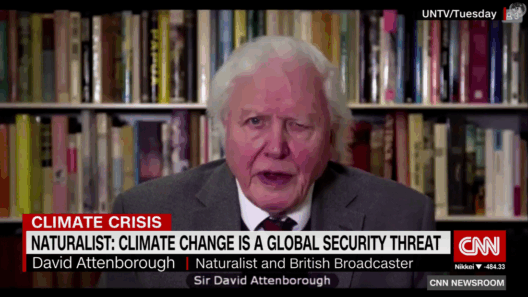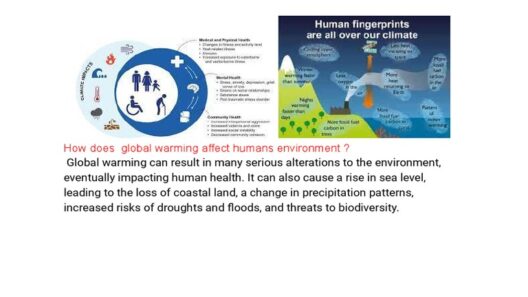In the ongoing discourse about climate change, an intriguing question frequently arises: Does not eating meat make a real difference in mitigating global warming? This question not only challenges the status quo of dietary habits but also implores us to consider the broader ecological implications of our choices. To navigate this debate, we must delve into the intricacies of environmental impact, the meat production process, and the potential benefits of a plant-based diet.
To begin with, it’s crucial to understand the ecological footprint of meat production. The livestock sector is a significant contributor to greenhouse gas emissions, accounting for about 14.5% of the total anthropogenic emissions annually, according to the Food and Agriculture Organization. Ruminant animals, such as cows and sheep, produce methane—an exceedingly potent greenhouse gas—during digestion. This gaseous output is substantially more effective at trapping heat in the atmosphere than carbon dioxide, rendering it a significant contributor to the greenhouse effect.
Moreover, the environmental ramifications of livestock farming extend beyond greenhouse gases. The cultivation of feed crops necessitates substantial land and water resources. Consider the staggering statistic that it takes approximately 1,800 gallons of water to produce just one pound of beef. Coupled with the fact that livestock farming requires vast tracts of land, often leading to deforestation and loss of biodiversity, the environmental cost appears monumental.
But can an individual’s choice to abstain from meat consumption make a tangible difference? A playful thought emerges: What if every person on the planet opted for a meatless Monday? Such a collective change, while seemingly modest, has the potential to evoke significant reductions in carbon emissions. A study by researchers at the University of Oxford suggests that if everyone fully embraced a plant-based diet, the global food-related emissions could be reduced by up to 70% by 2050. Such a transformation could potentially save millions of lives and save trillions in climate-related damages.
Despite the compelling data, the journey towards a meatless society presents challenges. For many, cultural and traditional ties to meat are profound, entwined with history and identity. This is where the conversation must pivot from mere advocacy to dialogue. Encouraging reduction rather than outright elimination of meat in our diets respects personal preferences while fostering a collective sense of responsibility towards the environment.
Additionally, the notion of sustainable meat consumption should also enter the fray. Not all meat is produced equally; regenerative agricultural practices can mitigate some of the negative environmental impacts traditionally associated with livestock farming. Ethical sourcing and sustainable farming practices—such as rotational grazing—can enhance soil health and biodiversity, creating a more symbiotic relationship between agriculture and the environment.
Transitioning to a plant-based diet is more than a personal choice; it’s a societal shift that requires systemic change. This change encompasses policy reforms, accessibility to organic and sustainable food options, and the normalization of plant-based diets within mainstream culture. Educational initiatives must flourish, targeting young generations to instill an understanding of food systems, sustainability, and climate awareness from an early age.
Delving deeper, one must consider the interconnectedness of various factors that contribute to climate change. The anthropogenic activities responsible for greenhouse gas emissions span beyond the dietary realm. Transportation, industrial processes, and energy production play pivotal roles in global warming. Consequently, while reducing meat consumption is a substantial and commendable step, it should be part of a holistic approach to sustainability that addresses multiple facets of environmental degradation.
Engaging in this broader ecological dialogue invites us to challenge ingrained habits and rethink our everyday practices, including food waste, water usage, and purchasing decisions. Each individual’s actions may seem diminutive in isolation, yet when multiplied across a global population, they hold the potential to effect profound change.
Let’s ponder another question: What if we viewed our food choices through the lens of mindful consumption? By understanding the seasonality of food and prioritizing local and organic options, we contribute to lessening the carbon footprint associated with food transport and production. It prompts us to consciously choose foods that not only nourish our bodies but also respect the planet.
Ultimately, it is essential to recognize the complexity of climate science and the multitude of factors at play. Deliberating whether reducing meat consumption alone can mitigate global warming oversimplifies a multifaceted issue. It opens up dialogues about collective responsibility, agricultural practices, and global food networks. Thus, every effort—small or large—contributes to a more sustainable future, one choice at a time.
In conclusion, the notion that abstaining from meat contributes positively to the battle against climate change holds considerable weight. However, it requires nuanced understanding, recognition of cultural values, and holistic approaches. We must forge a path towards sustainable eating practices, encourage systemic change, and champion education on this pressing issue. As we navigate this culinary landscape, let us embrace the challenge ahead with an informed perspective, rich conversations, and, above all, a commitment to our planet’s future.








